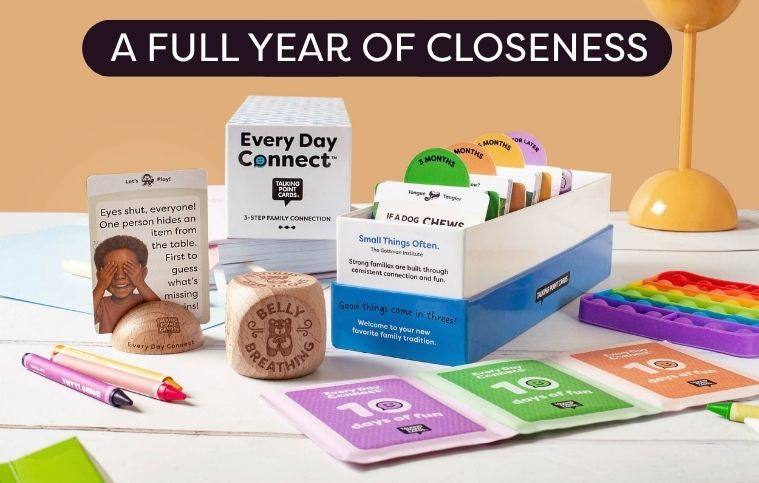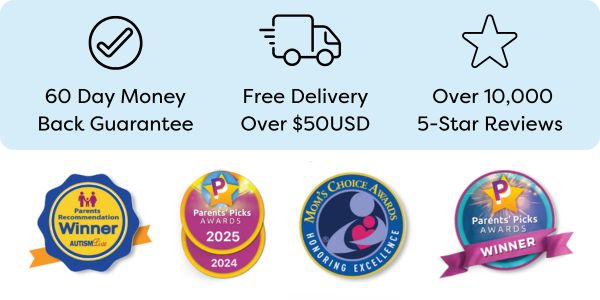SHOP
About
How Introverts Can Thrive at Holiday Gatherings
A Survival Guide for the Socially Drained

Let's be real - if you're an introvert, the phrase "holiday gathering" probably makes your stomach do that weird flippy thing. You know the one. It's that same feeling you get when someone suggests "team building exercises" or says "let's go around the room and introduce ourselves."
But here's the thing: holiday gatherings don't have to be an emotional marathon that leaves you feeling like you need a week-long nap in a sensory deprivation tank. Actually, with the right strategies, you might even (gasp!) enjoy yourself.
The Introvert's Holiday Paradox
Here's what's kind of fascinating about being an introvert during the holidays: you probably genuinely want to connect with your loved ones. Like, really connect. Not just do the whole surface-level small talk dance about weather and what Karen from accounting is up to these days. But the format of these gatherings - lots of people, lots of noise, lots of everything - can make meaningful connection feel about as achievable as teaching your cat to do taxes.
"Introverts aren't antisocial - we're differently social. We want connection as much as anyone else; we just process it differently."
- Susan Cain (who literally wrote the book on introverts)

The Science Behind Your Social Battery
Before we dive into the actual strategies, let's get nerdy for a second about why holiday gatherings can feel so draining. Your brain, that magnificent blob of neurons, processes social interaction differently if you're an introvert. It's like your neural pathways are running on a different operating system.
Research shows that introverts:
-
Process social stimuli more deeply
-
Have higher baseline cortical arousal (fancy way of saying your brain is already pretty stimulated)
-
Need more downtime to recharge their social batteries
-
Often perform better in quieter environments
Knowing this isn't just cool trivia - it's validation that your need for space isn't weird or antisocial. It's literally how your brain is wired.
Pre-Game Strategy: Setting Yourself Up for Success
Remember playing The Sims? How you'd make sure your Sim had full energy before sending them to a party? Same principle applies here (minus the possibility of spontaneously catching fire).
-
Block out alone time before the event
-
Have an exit strategy (more on this later)
-
Set realistic expectations - you don't have to talk to everyone
-
Choose your outfit ahead of time (one less decision to stress about)
The Art of Getting Better at Small Talk (Without Hating Every Second)
Okay, let's tackle the elephant in the room: small talk. It's like the vegetables of conversation - not anyone's favorite, but kind of necessary for a healthy social diet.
The Reframe That Changes Everything
Here's a perspective shift that might help: think of small talk as the social equivalent of a warm-up exercise. You wouldn't start a workout by trying to deadlift your max weight, right? Similarly, jumping straight into deep philosophical discussions about the meaning of life might be a bit much when you're just saying hi to Aunt Martha.
Some actually-useful conversation starters that don't make you want to crawl under the table:
-
"What's the most interesting thing you've been up to lately?"
-
"Any good books/shows/podcasts you're into right now?"
-
"What's been keeping you busy these days?"
Notice how these are open-ended but not too personal? They give people room to go deeper if they want, but also keep things light if that's what they prefer.
Strategic Positioning: The Introvert's Secret Weapon
This might sound ridiculously specific, but where you physically position yourself at a gathering can make a huge difference in how draining it feels. Think of it as social feng shui.
The Perfect Spots for Introverts:
-
The Kitchen Helper Position
-
Offers natural conversation starters
-
Gives you something to do with your hands
-
Provides built-in breaks ("Oh, I need to check on that thing in the oven")
-
-
The Cozy Corner Spot
-
Good for one-on-one conversations
-
Lets you observe without being in the middle of chaos
-
Natural boundary setting
-
-
The Pet Zone
-
Animals are the ultimate social buffer
-
Gives you something to focus on
-
Instant conversation topic that isn't about you
-
The Art of the Strategic Break
Look, sometimes you just need a minute. Or ten. Or twenty. And that's completely fine! The key is knowing how to take these breaks without making it weird or feeling guilty.

Socially Acceptable Break Excuses:
-
Getting some fresh air
-
Making a phone call
-
Helping with something in another room
-
Taking photos (bonus: people love when you document events)
-
Bathroom breaks (the classic)
Pro tip: If you're at someone's house, scope out a quiet spot early on. Maybe it's a back porch, a less-used room, or even your car. Having a destination makes it easier to take breaks when you need them.
Deep Conversations: Your Secret Strength
Here's where introverts often shine - the ability to have meaningful, one-on-one conversations. While extroverts might excel at working the room, you've got the superpower of making people feel truly heard.
How to Guide Small Talk into Deeper Waters:
-
Listen for "hooks" in what people are saying
-
Ask follow-up questions that show you're paying attention
-
Share related experiences (but don't hijack the conversation)
-
Look for common interests you can explore
When It Gets Overwhelming: Your Emergency Toolkit
Sometimes, despite your best planning, things get overwhelming. That's okay! Here's your emergency toolkit:
-
The Bathroom Break Reset
-
Splash cold water on your face
-
Take deep breaths
-
Send a quick text to your support person
-
Give yourself a pep talk in the mirror (seriously, it helps)
-
-
The Grounding Technique
-
Find 5 things you can see
-
4 things you can touch
-
3 things you can hear
-
2 things you can smell
-
1 thing you can taste
-
-
The Strategic ExitAlways have a pre-planned reason to leave if needed. It's not lying, it's boundaries!
Building Better Relationships Through Quality Over Quantity
Here's the cool thing about being an introvert at holiday gatherings: while others might have 20 surface-level conversations, you might have 2-3 really meaningful ones. And that's awesome! Those deeper connections often lead to stronger, more lasting relationships.
Tips for Quality Conversations:
-
Focus on one person at a time
-
Show genuine curiosity
-
Share your own experiences thoughtfully
-
Don't be afraid of comfortable silences
The Day-After Recovery Plan
Just as important as the gathering itself is how you recover afterward. Don't schedule anything demanding for the next day if you can help it. Your recovery might include:
-
Sleeping in
-
Quiet activities you enjoy
-
Minimal social media
-
Comfort food and favorite shows
-
Processing conversations and connections made
Conclusion: Embracing Your Introvert Superpowers
Holiday gatherings don't have to be survival situations. By understanding and working with your introvert nature rather than against it, you can actually create meaningful connections while staying true to yourself. Remember, being an introvert isn't a weakness - it's just a different way of experiencing and processing the world.
And hey, if all else fails, there's always next year to perfect your strategy. Or you could just get a really convincing mannequin to take your place. (Kidding! Mostly.)
LIKED THIS ARTICLE?
SIGN UP FOR MORE!







